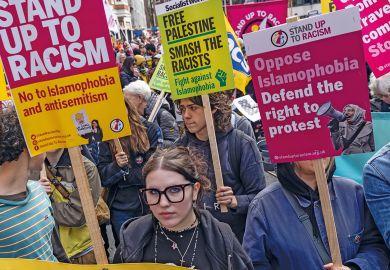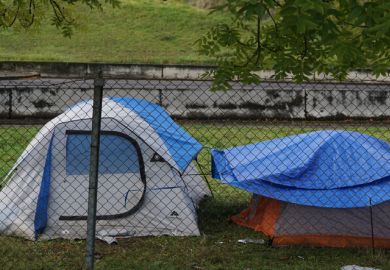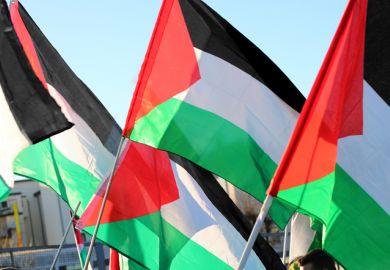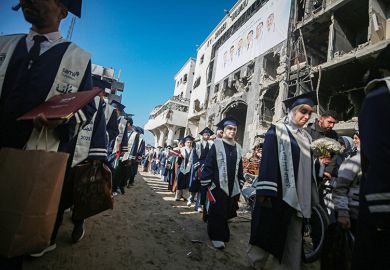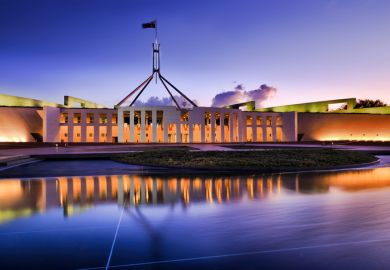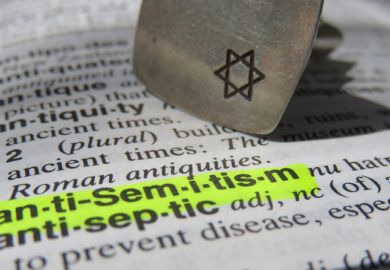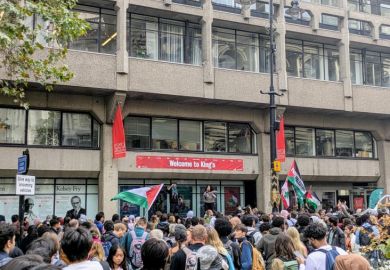Police made 16 arrests while clearing an occupation of University of Oxford offices, in an escalation of tensions over pro-Palestinian demonstrations on UK campuses.
Members of Oxford Action for Palestine (OA4P) said they initiated a “sit-in” at the university offices in Wellington Square early on 23 May. In a statement posted on social media, the group – which has been maintaining an encampment in front of the Pitt Rivers Museum calling on Oxford to sever ties with Israeli-linked companies in response to the war in Gaza – said they had gained access to the office of vice-chancellor Irene Tracey.
In their statement, the students said that they had intended to “only stay in the building until the administration agreed to meet for negotiations”, but that Professor Tracey had evacuated the building and called the police.
In a statement, Thames Valley Police said that it had been called to Wellington Square after reports that protesters “had gained access to a private office”.
The statement said 16 people had been arrested on suspicion of aggravated trespass, with one of these also detained on suspicion of common assault.
In its statement, the university said the episode had caused “significant distress for members of reception staff [at Wellington Square] and the wider staff community”. A receptionist had been “physically handl[ed]”, Oxford said.
“Contrary to claims by OA4P, or to selectively edited videos posted online, this was not a peaceful sit-in, but a violent action that included forcibly overpowering the receptionist, and then entry into the vice-chancellor’s office while she was on a call, shouting and starting to barricade the doors,” the university said.
The university said the incident followed “the targeting of graduations and other events, the intentional disruption of our students’ ability to study for their exams, and putting up defamatory posters of the vice-chancellor across Oxford, all of which we have evidenced as coming from the encampment”.
In its statement, OA4P said it was “evident that the administration would rather arrest, silence and physically assault its own students than confront its enabling of Israel’s genocide in Gaza”.
The Oxford branch of the University and College Union (UCU) said it had written to Professor Tracey, urging her to “call off the police, release those who have already been arrested, and engage students and staff in negotiations in relation to Palestine as they have repeatedly requested over the past weeks”.
Meanwhile, UCU’s national office said it “condemn[ed]” Professor Tracey “in the strongest possible terms for bringing in police to violently arrest her own students [who were] engaged in peaceful protest against genocide”.
But Oxford said it was in continuous dialogue with concerned students and staff, “including people who are involved in the encampment”, as well as with the campus Palestine, Islamic and Jewish societies.
It said that the university was working to support students and universities in Gaza and the West Bank, but that it could not enter into negotiations with OA4P because of “prejudicial” preconditions that the group had demanded. The university also claimed that some faculty claiming to represent OA4P were “not interested in dialogue in good faith”.
“It is clear that the actions of some of the protesters involved in the encampment have created a deeply intimidating environment for many members of our community, including our Jewish students and staff and members of the local Jewish community,” the university said.
“It is imperative that the university feels safe for all our members, and the actions of some of the protesters have undermined those foundational principles of dignity, care and respect which we must all maintain.”
The episode comes after pro-Palestinian encampments spread across more than a dozen UK universities, with students joining a mass movement in support of Gaza that started in the US.
Until now, UK vice-chancellors have largely sought to avoid direct confrontation with protesters or police intervention, perhaps fearing a repeat of the chaotic scenes – and the escalation in tensions – witnessed on the other side of the Atlantic.
In the US, police have arrested 2,500 people, mostly students, participating in pro-Palestinian demonstrations over recent weeks at dozens of colleges, despite the protesters largely remaining peaceful and avoiding overt disruption to academic activities.
However, UK prime minister Rishi Sunak has told universities that they must take “immediate disciplinary action” against students found to be inciting racial hatred or violence.
Thames Valley Police said it had also dealt with protesters around Wellington Square who had “sought to obstruct the removal of the persons arrested”. No further arrests were made.
“We are still managing a small peaceful protest in the city. We are aware of footage circulating on social media, which show our officers using lawful, proportionate and necessary action in the difficult circumstances they faced,” a force spokeswoman said.
Register to continue
Why register?
- Registration is free and only takes a moment
- Once registered, you can read 3 articles a month
- Sign up for our newsletter
Subscribe
Or subscribe for unlimited access to:
- Unlimited access to news, views, insights & reviews
- Digital editions
- Digital access to THE’s university and college rankings analysis
Already registered or a current subscriber?

